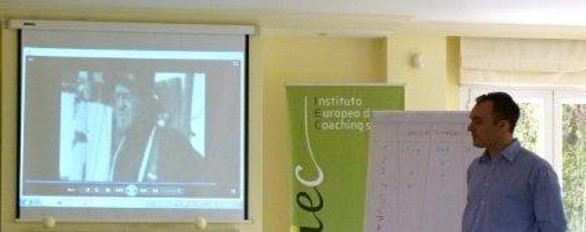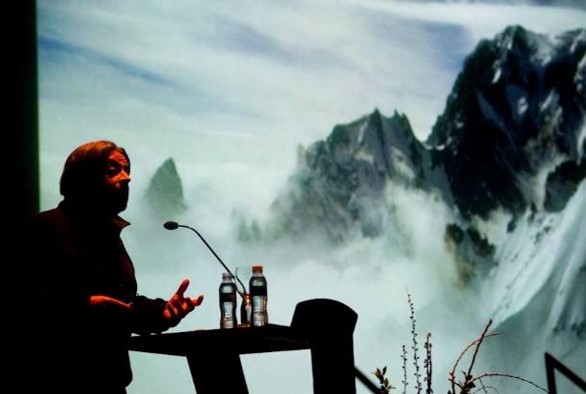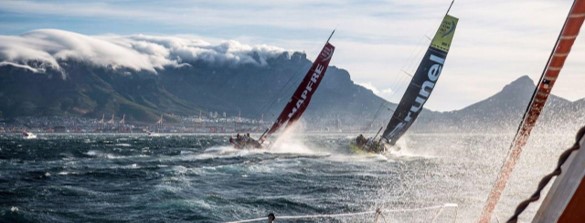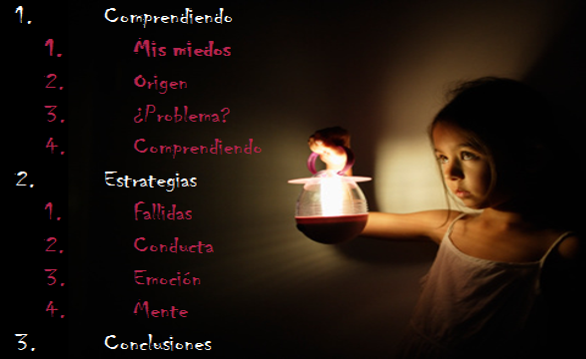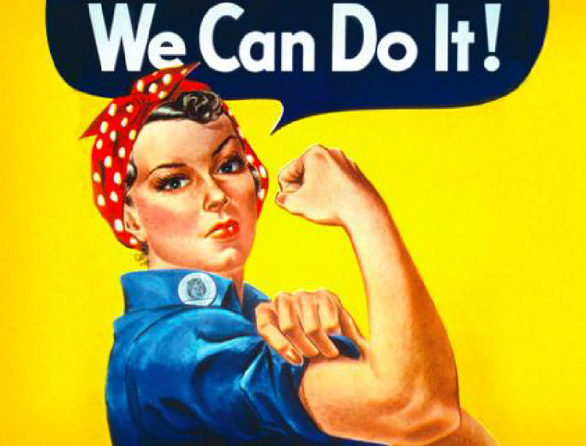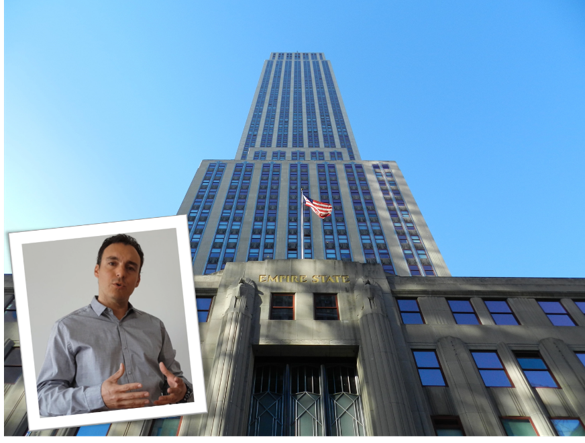Blanco
What is INSPIRING STORIES?
 Our inspiring stories are an excellent background for a memorable journey of discovery and learning.
Our inspiring stories are an excellent background for a memorable journey of discovery and learning.
We look for the most exciting and interesting stories, people and adventures, current or historical, we take participants to places and times different from ours, we get excited, we discover ideas …
Besides, our stories have a didactic purpose. With them, we acquire new perspectives and skills with which to enrich ourselves back to reality.
We can adapt our stories to different formats (workshop, conference …), durations, sizes and types of audience, messages and content, medium (face-to-face / on-line), etc. for each specific case and we help to transfer conclusions to reality.
Leadership in critical situations - Shackleton expedition to the South Pole
 How to lead companies and people when the environment is hostile and uncertain? In this lecture, we will remember the epic Shackleton’s expedition to the South Pole from 1914 to 1917.
How to lead companies and people when the environment is hostile and uncertain? In this lecture, we will remember the epic Shackleton’s expedition to the South Pole from 1914 to 1917.
We will enjoy very beautiful historical films and pictures and the protagonists’ diaries to understand how 27 men could survive all kinds of adversity.
Finally we will take some of these ideas to the current context, and we will look for practical conclusions applicable to our reality. For example, we can compare Shackleton’s management of critical situations with other modern crises, such as that of the coronavirus, and look for keys to success and failure.
The most beautiful mountains – Ramón Portilla
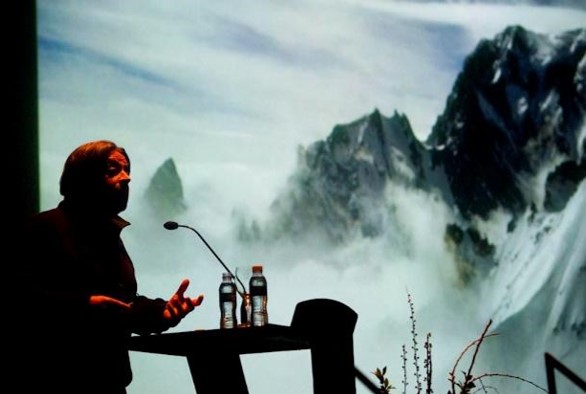
Ramón Portilla is one of the best mountaineers in the world. He has survived more than 30 years of climbing, 16 of them on the TVE program “Al filo de lo imposible”.
Luckily for us, we will be able to shudder in awe with one of his many adventures, through first-person narration, and impressive audiovisual material exclusive.
We will also find many points in common with the business world: setting and fighting for goals, teamwork, overcoming crises, leadership, planning, etc.
The Kennedy Missile Crisis – Strategic Decision Making in Uncertainty
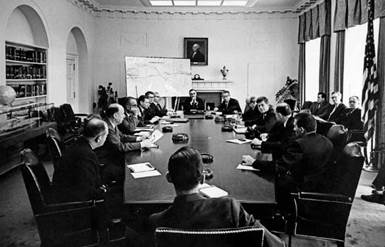
In 1962 the world was on the verge of a third nuclear world war, which would have meant the annihilation of humanity. In the midst of the cold war, Kennedy discovered the installation of Soviet missiles in Cuba. One of the most complex decision-making processes in history took place.
This historical but unknown situation allows us to make the participants be part of the executive committee that advised Kennedy, and make critical decisions for humanity in a short time.
Participants will be assigned historical characters and will have spy photos, crisis reports, videos of the situation, etc. They will have to select the relevant information, generate alternatives, analyze them and calculate possible results and risks, determine objectives and plans, seek consensus and convince other decision makers, etc.
In the crisis resolution process, they will learn first-hand the difficulties and keys to good decision-making, also applicable to our current decisions.
Rommel: Leadership, decisions, values and moral dilemmas
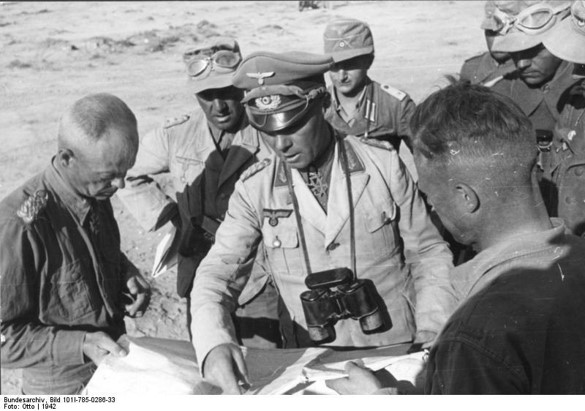 Erwin Rommel is very controversial and interesting but unknown historical character. Full of lights and shadows, it challenges a simplistic analysis and offers us many learnings about leadership and values, decision making, moral dilemmas, integrity, etc. both positive and negative.
Erwin Rommel is very controversial and interesting but unknown historical character. Full of lights and shadows, it challenges a simplistic analysis and offers us many learnings about leadership and values, decision making, moral dilemmas, integrity, etc. both positive and negative.
Without engaging in sterile historical or ideological debates, we will review anecdotes, facts, and decisions on and off the battlefield, seeking conclusions applicable to the leadership of people in modern companies.
Volvo Ocean Race and management in VUCA environments
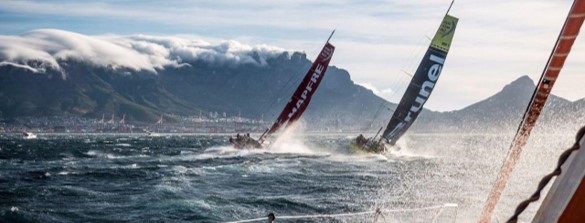 The Volvo Ocean Race is the main and most competitive sailing regatta. Across all oceans and for several months, they face subhuman conditions to demonstrate which is the fastest team around the world.
The Volvo Ocean Race is the main and most competitive sailing regatta. Across all oceans and for several months, they face subhuman conditions to demonstrate which is the fastest team around the world.
We will count on Antonio Bolaños, former Director of the Volvo Ocean Race, to reveal the secrets and learning that have allowed the success and growth of this company in VUCA environments (volatile, uncertain, complex, and ambiguous).
We will discover amazing sailing stories, connect them with other equivalents in the management of the Volvo Ocean Race company, and obtain ideas and best practices applicable in our reality regarding the creation and management of high-performance teams and companies.
Leadership in the Magallanes / Elcano expedition - Success or disaster?
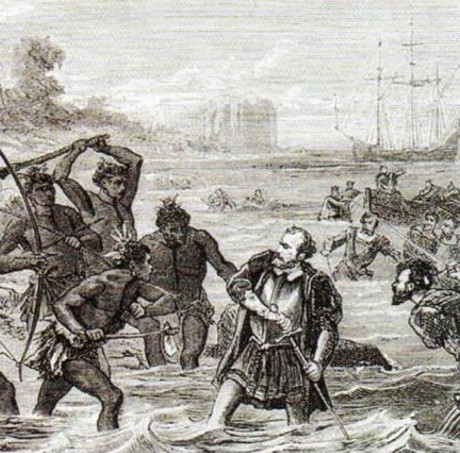
What can we learn from the greatest maritime epic in history and its leaders? From the 265 sailors who left Spain 500 years ago, only 18 alive returned in the Victoria ship, after three years of expedition, and almost 80,000 kilometers sailing the oceans.
We will discover historical material of great interest to get to know the leaders (Magellan and Elcano) and their relationship with other people. We will review their strengths and weaknesses, the critical moments, the behaviors and crucial decisions that made the difference between life and death, between glory and disaster.
Finally we will take these learnings to the current context, and we will look for practical conclusions applicable to the day to day.
Pirates of the Caribbean: learning even from the devil.
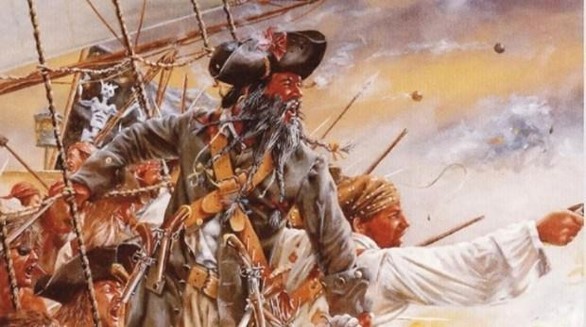 The 17th century pirates of the Caribbean are as mythical as unknown. Films convey a distorted image.
The 17th century pirates of the Caribbean are as mythical as unknown. Films convey a distorted image.
However, these pirates managed to succeed for 200 years against the most powerful empires and armies of the time. Regardless of moral judgments about their means and ends, how did they do it?
We will navigate between fiction and historical reality, towards a great treasure: the keys to success of organizations and teams (then and now) in hostile and competitive environments.
Fear - Understand and overcome your most primitive emotion
 What is fear? Where does it come from and how does this powerful and crippling guest work? How does it dominate and limit us?
What is fear? Where does it come from and how does this powerful and crippling guest work? How does it dominate and limit us?
What does NOT work to control it and why can’t you defeat it? What behavioral, emotional, and rational strategies DO work to deal with it?
Luis González will share his life journey with this emotion and the strategies he has used to manage it in himself and in his children and clients. And most importantly, each of us will dare to shed light on the most blocking, dark and powerful emotion, so that it becomes our servant, and not the other way around.
Stupidity vs. intelligence - whose side are you on?
 Human stupidity is a phenomenon which is as widespread and harmful as misunderstood, especially by those who suffer from it, whether individuals or organizations.
Human stupidity is a phenomenon which is as widespread and harmful as misunderstood, especially by those who suffer from it, whether individuals or organizations.
So we will try to understand stupidity and how to react before it. We will also understand what the evolutionary purpose of the human mind is, and how the little use we make of it. We will clarify the concept “intelligence” and other related concepts, and why intelligence is so important for the success and performance of individuals and companies.
Regarding organizations, we will diagnose our degree of collective stupidity, and we will try to awaken a “nervous system” to allow the collectivity to acquire consciousness and intelligence and learn from its mistakes without repeating them.
The right of admission is reserved only for intelligent people with sense of humor.
Freedom - From theory to practice
 Freedom is a concept that has always fascinated human beings, along time and across jobs and places. It is as difficult to acquire and maintain as to understand it.
Freedom is a concept that has always fascinated human beings, along time and across jobs and places. It is as difficult to acquire and maintain as to understand it.
The interest is not only intellectual, but eminently practical. Every day we make thousands of decisions, conscious or unconscious, banal or strategic, but all of them with an effect on our lives.
In this lecture we will investigate questions such as: What is freedom? Does it exist? How to be freer? How to relate to others and lead from freedom without failing in the attempt? How to integrate this fundamental value in our lives as individuals and in our companies?
Female leadership - A different vision
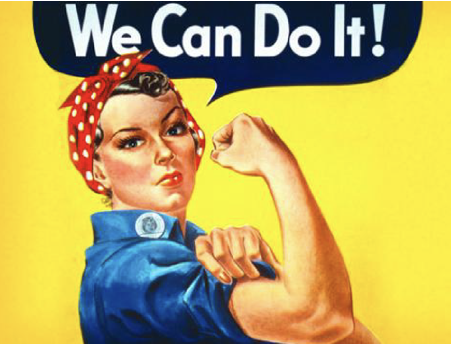 In this lecture we will discuss the keys to developing the potential of female leadership, beyond stereotypes and superstitions.
In this lecture we will discuss the keys to developing the potential of female leadership, beyond stereotypes and superstitions.
We will discern what is true and useful in female leadership, and the real and fictional differences between the sexes. We will debunk some myths, present some shocking facts, and move away from political correctness, searching the sciences for explanations of complex realities. Finally we will look for guidelines and keys to lead and work successfully among and with men.
All this from a scientific and humanistic point of view, away from machismo, radical feminism, and past and present topics that prevent a constructive debate between people, whatever their sex, so that we all have the same opportunities.
Your mind deceives you! Psychology of belief
 We will discover how our cognitive, social, emotional biases… make our strongest beliefs may be wrong. This will allow us to answer questions such as:
We will discover how our cognitive, social, emotional biases… make our strongest beliefs may be wrong. This will allow us to answer questions such as:
- How does our own mind deceive us?
- How do advertisers, politicians, and people around us take advantage of them?
- How can we avoid being manipulated? How can we use them to our advantage?
- How do we self-program for success or failure?
We will try in person some curious experiments documented by psychology, and we will discover some shocking or fun scientific evidences. Finally, we will reflect on how we can harness the psychology of belief for our professional and personal success.
The Empire State - Why your goals don't work and how to achieve them?
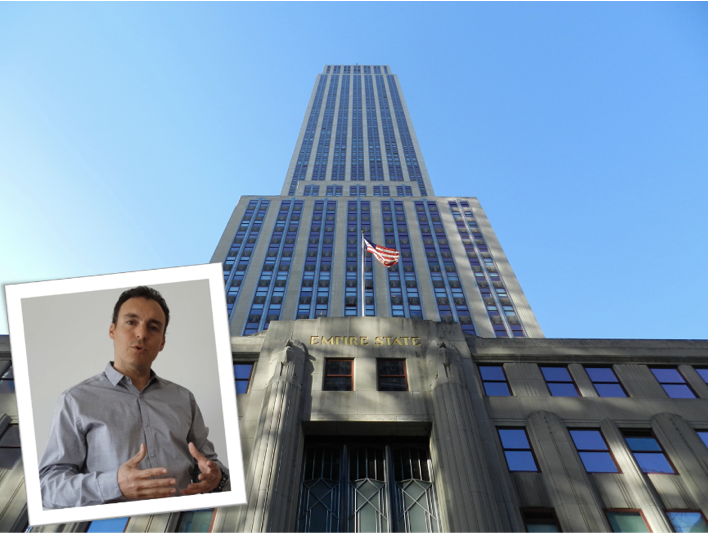 The Empire State Building is one of the most iconic and well-known buildings, but it hides a really surprising story that we will discover together.
The Empire State Building is one of the most iconic and well-known buildings, but it hides a really surprising story that we will discover together.
Through this storytelling, we will break down some keys to having objectives that lead us to personal or organizational success, and vaccinate ourselves against the most common mistakes that usually happen when we establish them.
Finally we will choose some personal or professional objectives and we will work them so that later they work for us.
What do I have to know about Coaching as an HR professional?
 Many HR or training professionals have doubts when introducing Coaching processes in their organizations. Amid fads and commercial pressures, it is not clear what the added value of this methodology is, nor when and how to use it with good judgment.
Many HR or training professionals have doubts when introducing Coaching processes in their organizations. Amid fads and commercial pressures, it is not clear what the added value of this methodology is, nor when and how to use it with good judgment.
In response to this need, we proposed an informative session in which the objective is not to learn to do coaching, but to have the perspective and criteria to be able to manage it, buy it and make the most of it in my organization.
Some of the contents are: What is and is not Coaching? Coaching vs. other development methodologies, Buying well Coaching, Some applications
Generational diversity. Are we ready in companies?
 In a journey through the generations that today coexist (and sometimes disagree) in companies, we will discuss the following points:
In a journey through the generations that today coexist (and sometimes disagree) in companies, we will discuss the following points:
- The main differences that you did not know between the 5 generations
- Why is it wrong to treat them all in a homogeneous way?
- Opportunities and challenges posed by generational diversity for people management
- How to manage talent between different generations? Guidelines to make it an asset and not a problem in companies
Next, we will establish a dialogue between generations and individuals that will allow us to understand and work better.
Zheng Shih, the pirate queen - Power, hierarchy and remote leadership

Zheng Shih’s story is as extraordinary as unknown.
How could a poor young prostitute become the most successful pirate in history? How did you come to command 70,000 pirates and put the Chinese empire in check?
How could she achieve, exercise and maintain power against all probability and in such a sexist and violent environment? What is the difference between meritocratic hierarchies and domination based on violence? What differentiates the mafias from the “legitimate” states?
How could she remotely lead a huge and dispersed fleet? What coordination and influence mechanisms did she use?
What good lessons can we learn from terrible but successful people and organizations? What can we learn for our companies today?
Do you want more information?
Download our detailed dossier in pdf or contact us at info@revitalent.com
Success case
Situation: Extended management committee (50 people) of a food multinational that wants to relaunch the company after the crisis.
Solution: Conference on Shackleton and leadership in crisis situations.
Result: High involvement, rich debate among managers and congratulations from the CEO.

